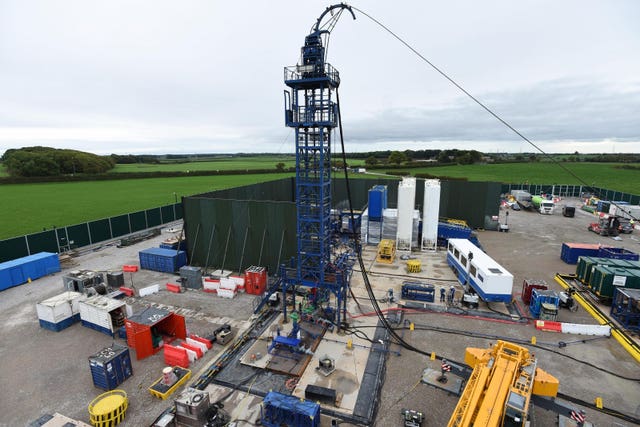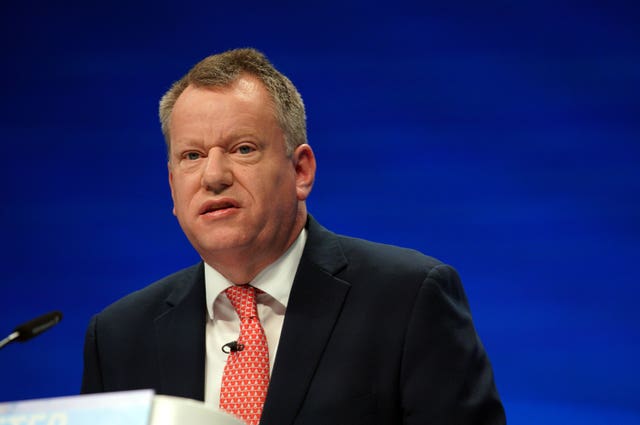
Nick Abbot 10pm - 1am
13 February 2022, 06:24

More than 30 Tory MPs and peers are calling for Boris Johnson to end the UK’s moratorium on shale gas mining.
Lord Frost is among a group of senior Tory MPs and peers urging Boris Johnson to reverse the Government’s ban on fracking as the UK faces an energy crisis.
In a joint letter to the Prime Minister, the former Cabinet minister and around 29 other Conservatives said it is “time to reverse this moratorium”.
The shale gas mining ban which came into effect in 2019 comes after the energy company Cuadrilla was ordered to seal up two of England’s only viable shale gas wells.

Lord Frost said reversing the fracking ban would herald a “British energy renaissance”.
He told the Telegraph: “If our economy is to boom after Brexit, British industry needs a competitive and reliable source of energy which we hold in our own hands and brings investment into this country. Shale gas production achieves all this and more.
“If we don’t produce it here, as we have seen, all we do is import gas from elsewhere, and push up overall carbon emissions too.
“So let’s reverse the moratorium on shale gas and let a British energy renaissance begin.”

Cuadrilla chief executive Francis Egan hit out at the move to permanently plug and abandon its two horizontal shale wells drilled at the Preston New Road site in Lancashire, claiming domestic shale gas could combat the cost-of-living crisis.
Writing in the Telegraph, Mr Egan said “using domestic shale gas should be a no-brainer.”
He added: “Developing and producing this precious resource would create tens of thousands of well-paid jobs and empower local communities in the North. ‘Red Wall’ councils would raise millions of pounds in local taxes, and tax on domestic gas production could generate revenue for the NHS.”
Lord Goldsmith, the Minister of State for the Pacific and the International Environment, appeared to respond to the push within his party to reverse the moratorium.
In a series of tweets, he said: “The argument that fracking will reduce our reliance on Russian gas is wrong. Between just 1 & 3% of UK gas comes from Russia. We import mostly from Norway – a friend and ally.
The argument that fracking will reduce our reliance on Russian gas is wrong. Between just 1 & 3% of UK gas comes from Russia. We import mostly from Norway – a friend and ally. /1
— Zac Goldsmith (@ZacGoldsmith) February 12, 2022
“To replace half the gas we import, we’d likely need around 6,000 new wells, with all the associated industrial equipment & endless movements of trucks ferrying toxic chemicals & wastewater to & from sites. It’s hard to imagine communities across the UK being ok with that.
“It’s hard to overstate just how unpopular fracking is with the British public. The last BEIS (the Department for Business, Energy and Industrial Strategy) attitude tracker showed only 18% support (76% supported onshore wind). People do not want large-scale industrialisation of the British countryside.
“And given the gas would be produced by private firms and sold at the highest price (internationally), there would likely be no measurable impact on UK gas prices anyway.”
It’s hard to overstate just how unpopular fracking is with the British public. The last BEIS attitude tracker showed only 18% support (76% supported onshore wind). People do not want large-scale industrialisation of the British countryside. /3
— Zac Goldsmith (@ZacGoldsmith) February 12, 2022
Lord Goldsmith concluded by saying: “We do need gas – it is the cleanest bridge to renewables (I’ve not seen a model that says otherwise). But the UK is not Utah. To have any impact at all, Govt would need to rig the market & go to war with furious communities. On every level the cost would be enormous.”
The controversial process of hydraulic fracturing involves liquid being pumped deep underground at high pressure to fracture shale rock and release gas or oil trapped within it.
A moratorium was imposed on fracking in November 2019 after it caused two minor earthquakes in Lancashire.